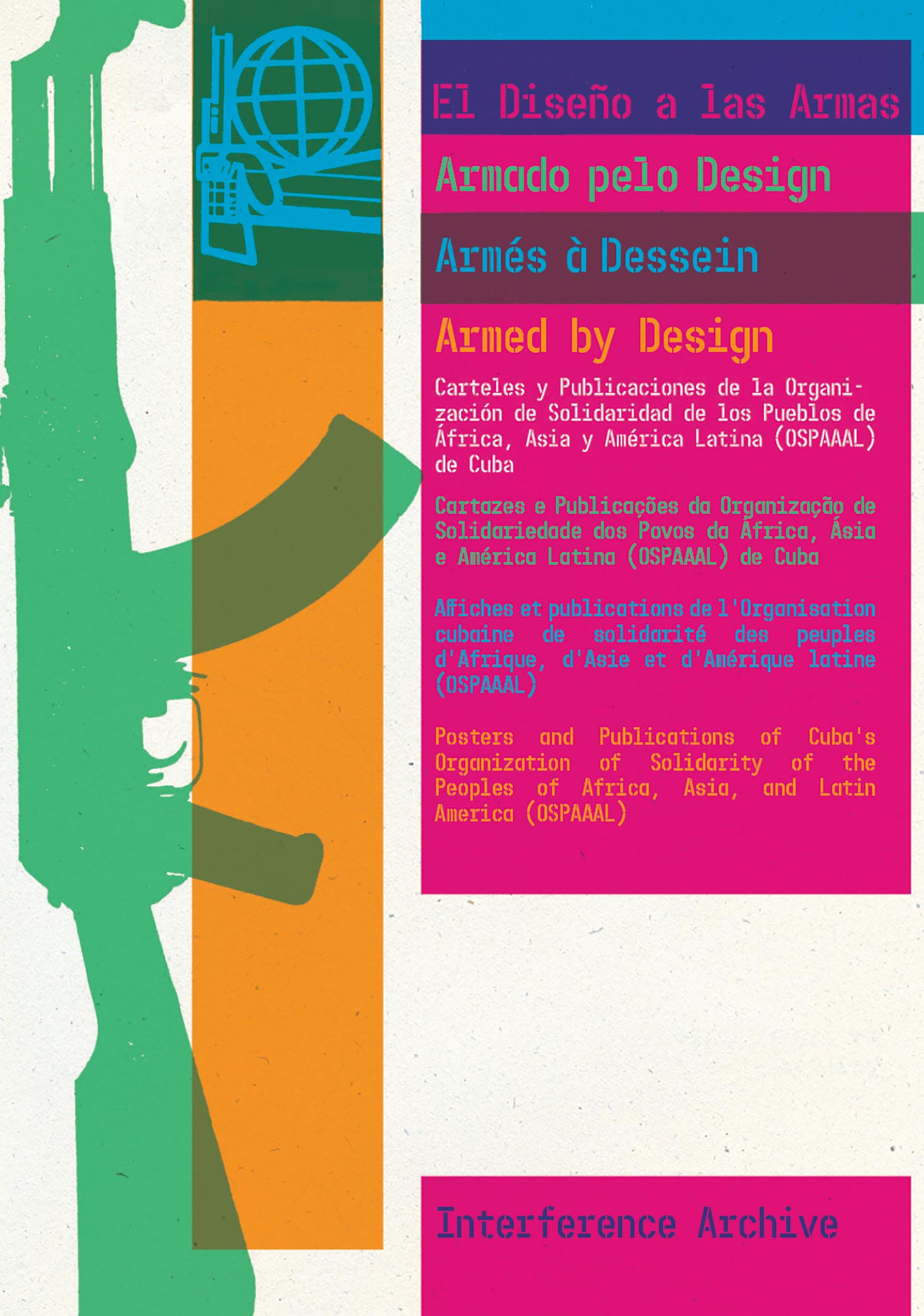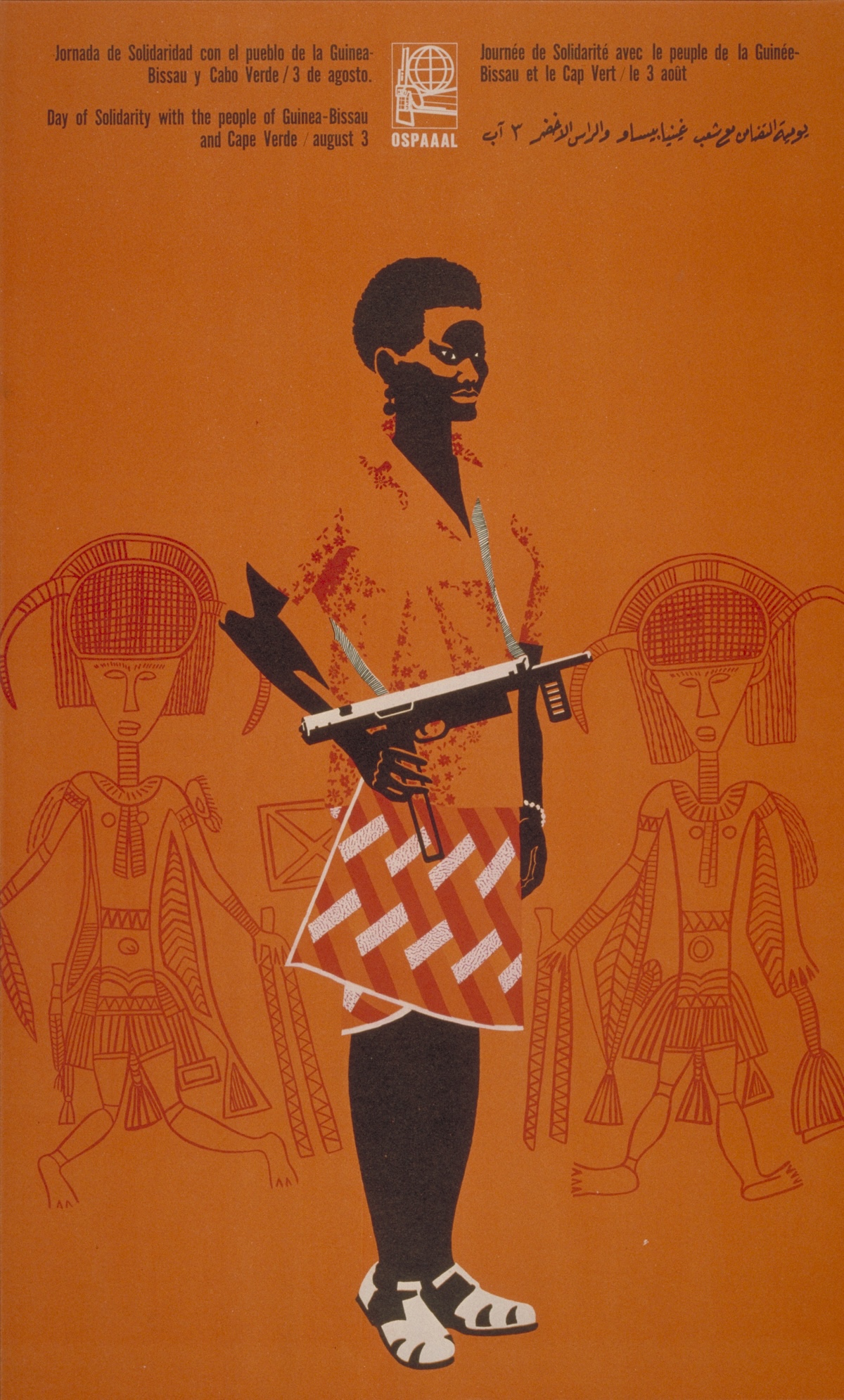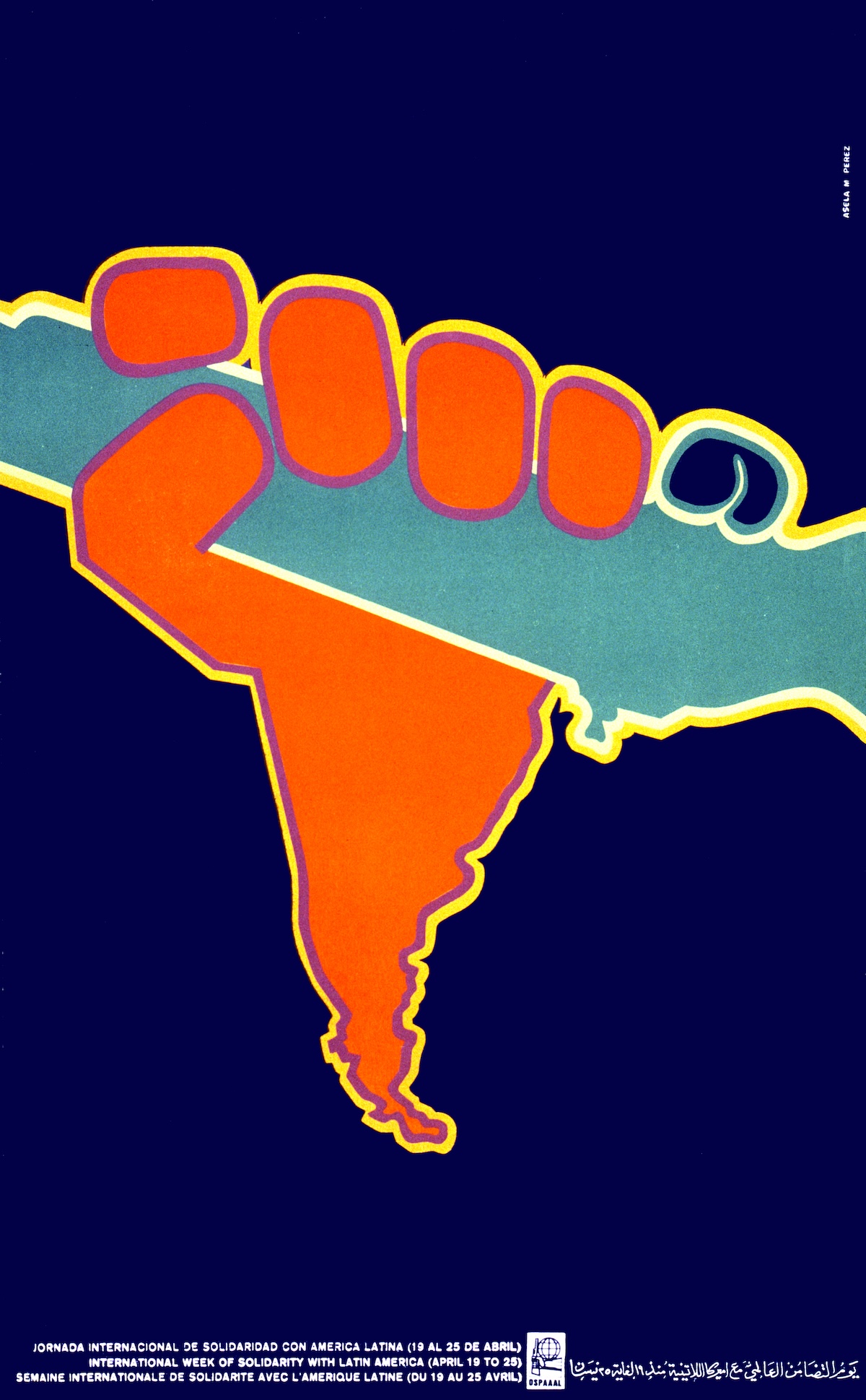27 March 2025 07:00PM
Very happy to launch, with Lani Hanna, one of its editors, this impressive book on the graphic and intellectual legacy of the OSPAAAL!
OSPAAAL – the Organization of Solidarity of the Peoples of Africa, Asia, and Latin America – developed out of the 1966 Tricontinental Conference in Havana, a meeting of delegates representing national liberation movements and leftist political parties almost exclusively from the Global South. Based in Havana, OSPAAAL produced nearly five hundred posters, magazines, and books beginning in the late 1960s, with most of their work ceasing by the late 1980s. Until 2019, OSPAAAL was a political organization focused on fighting US imperialism and supporting liberation movements around the world through poster production, regularly produced publications, and a series of books featuring the writings of the intellectual leadership of these movements.
Armed By Design brings together artists and thinkers from around the world whose work has been impacted by the legacy of OSPAAAL. These contributions reflect on impacts of OSPAAAL’s work on regional movements, including in the Arab world and Korea, design iconography, the evolution of tricontinentalism, our present-day relationship to OSPAAAL posters as a commodity, and authorship and reproduction.
The book itself is also a project of international solidarity. The entire text is published in four languages (Spanish, Portuguese, French, and English) and we worked with four publishers in three countries (Common Notions/US, Coop Rebozo/Mexico, Tumblacasa/Mexico, and Sobinfluencia/Brazil).
Armed by Design: Posters and Publications of Cuba’s Organization of Solidarity of the Peoples of Africa, Asia, and Latin America (OSPAAAL)
Edited by Interference Archive (Lani Hanna, Jen Hoyer, Josh MacPhee, Vero Ordaz, Sarah Seidman)
Interference Archive is a community-supported archive of material from social movements around the world, created with a mission to explore the relationship between cultural production and social movements. This work manifests in an open stacks archival collection, publications, a study center, and public programs including exhibitions, workshops, talks, and screenings, all of which encourage critical and creative engagement with the rich history of social movements.


